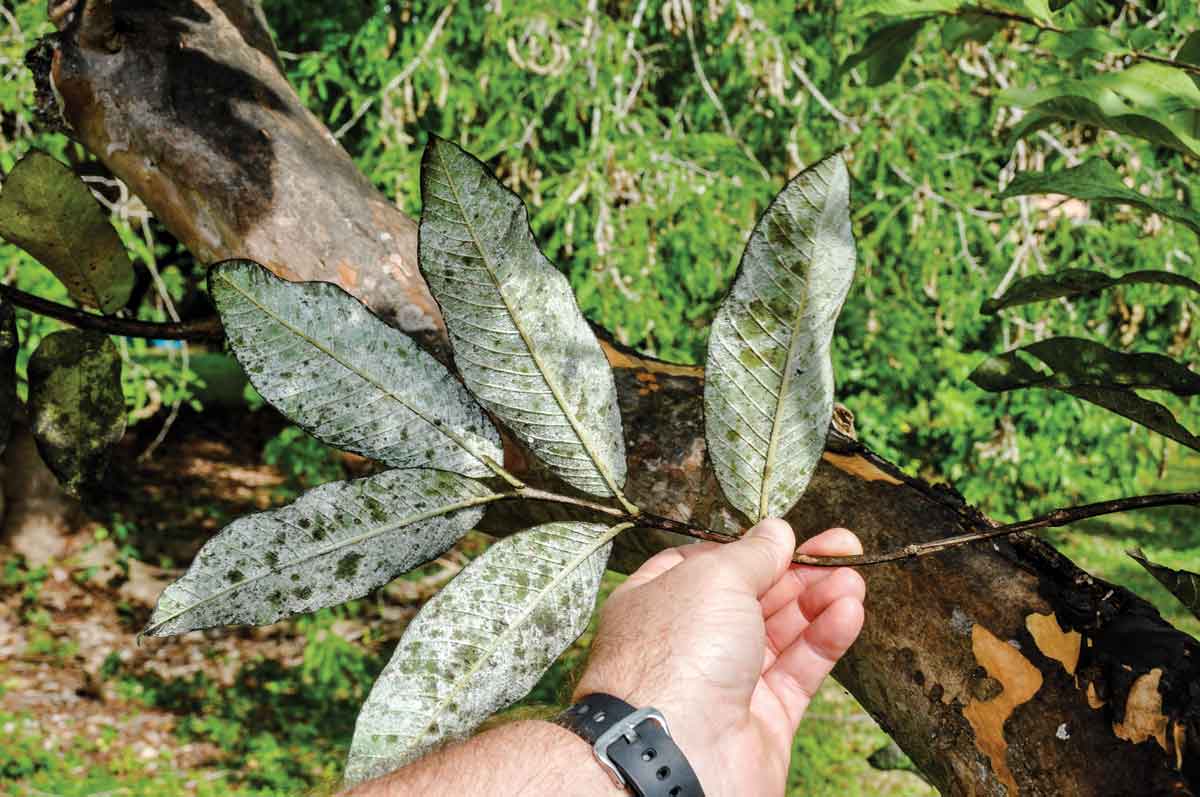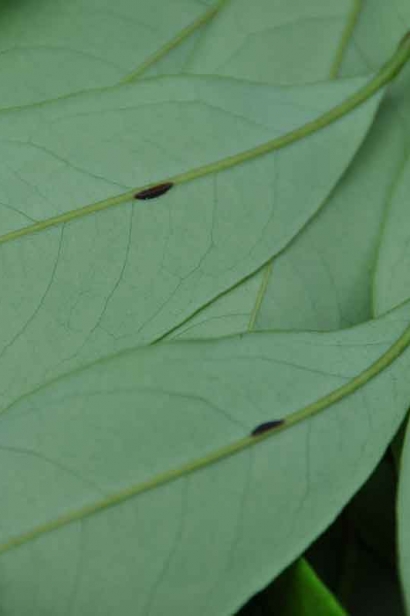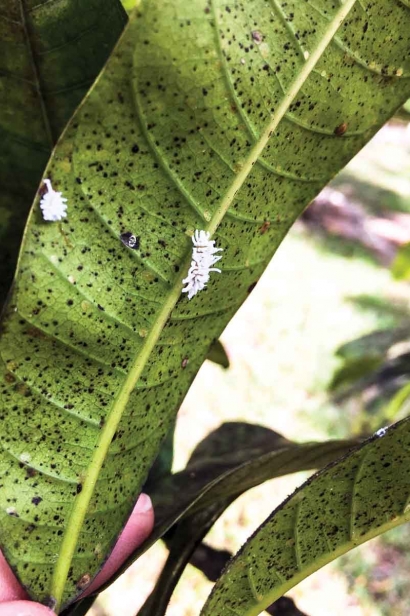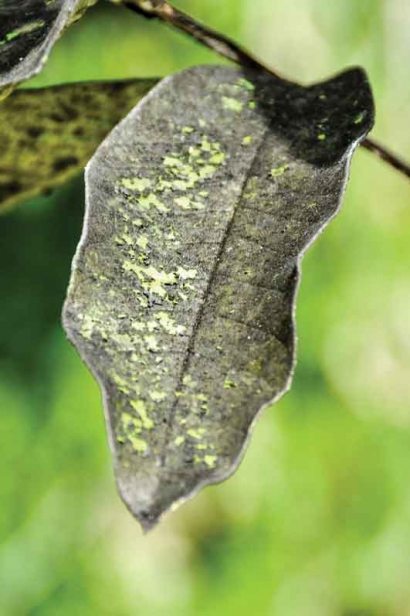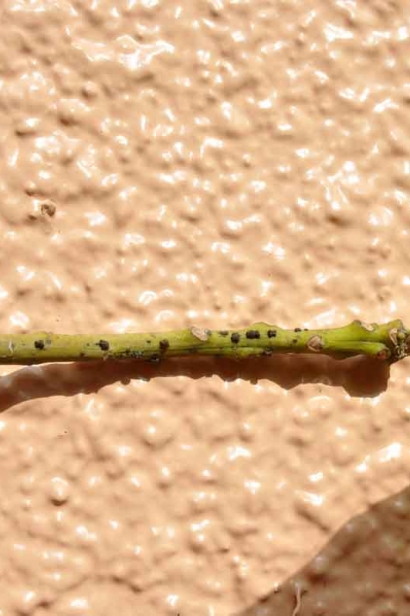Good Bugs and Bad Bugs
As my daughter and I walked through the tropical fruit learning grove at the Miami-Dade Extension office, it was hard to find any insects to take pictures of for this article. That’s because I have a variety of tropical fruit trees and I don’t spray insecticides.
Not spraying allows beneficial insects, the natural predators of the insect world, to thrive and keep the bad bugs in check. There can be some flare-ups of bad bug activity, but with time, they will recede.
Aphids
Generally rare on tropical fruit trees, aphids will be on the new tender growth.
Scales
Probably the most common insect on tropical fruit trees, scales come in many shapes, sizes and colors and can be soft or hard.
Whiteflies
Tiny flies with heart-shaped wings, they are all white and are usually found in large masses. They sometimes excrete a covering for their eggs that makes the underside of a leaf look hairy.
Mealybugs
Not as common as scale and whitefly, mealybugs have are white with long antenna.
Good Guys
Beneficial insects come in many shapes and sizes, but one of them, the immature ladybug looks just like a large mealybug. If you see one large mealybug-type insect by itself, it is probably the immature ladybug, which is a very good natural predator. Spiders are also good natural predators and should be encouraged.
When dealing with insects and tropical fruit, I believe it’s better to have a little insect damage than to spray a nasty chemical. You do eat your tropical fruit, right? Wouldn’t you rather they not have insecticides on them? If you do end up spraying something on your trees, make sure that it’s labeled for the crop you are spraying them on. If you spray them on a mango tree, the label must say that the chemical can be sprayed on mangos. In most cases, though, natural predators will probably clean up your fruit trees before things get too bad.
Questions about your tropical fruit trees? Call a UF/IFAS extension agent at 305-248-3311. Homeowners: Adrian Hunsberger (ext. 236); commercial tropical fruit growers: Jeff Wasielewski (ext. 227); commercial vegetable growers: Qingren Wang (ext. 234).


